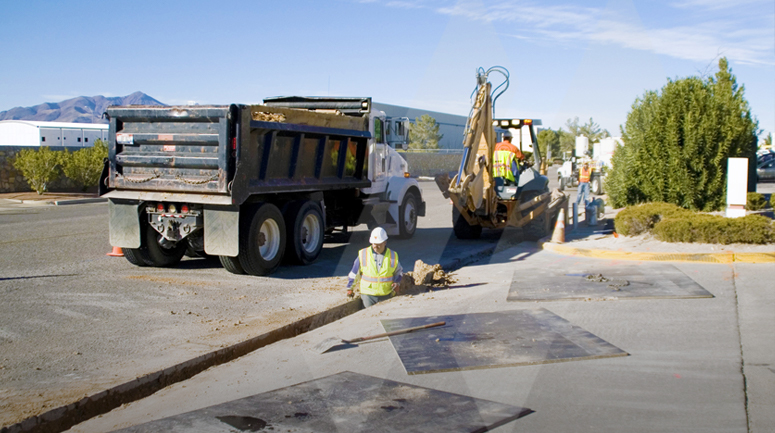The Benefits of Strong Relationships in Utility Coordination
| Sean Weingartner

Many factors go into becoming what I would consider, a quality Utility Coordinator (UC). The main, and arguably one of the most important factors is the relationship the UC establishes with the project stakeholders, our clients, and the utility companies. The relationship-building begins early in project development, as UCs are included in the design phase. Most UCs have projects in several locations but should work to maintain a local presence as well. UCs often work with many of the same people numerous times, especially when regional contracts have multiple work authorizations.
At the very beginning of a project, UCs work with the designer, be it a Department of Transportation (DOT), for example, or a contract designer. It is at this stage that, unless already established, UCs need to work to establish and maintain trust and confidence with their clients in their skills and abilities. Because utilities are an integral part of a design, being able to identify conflicts early in the plan development process and make recommendations to the designer to make changes is key. For that same reason, an established relationship is vital as the designer needs to trust that a UC is making logical recommendations.
In general, UCs are hired based on their firm’s reputation and previous experience, but it is up to the UC themselves to deliver the most accurate recommendations. The relationships built with a district DOT staff and their confidence in a UC’s abilities influence hiring firms and authorizing work. But even with a good relationship, that work isn’t guaranteed. UCs must provide quality submittals to RFPs/RFQs for Utility Engineering services.
The other side of this coin is the relationships UCs build and maintain with utility companies. UCs must rely on the utility company to provide timely information to make those critical decisions regarding utility relocation. Even more so, they depend on UCs to act as the liaison between the company and the project developer. The UC must keep all parties’ best interests in mind when making recommendations. Very much like DOTs, UCs frequently work with the same representatives from utility companies. In large design-build projects, a UC may deal with the same individuals for years at a time. It is essential that UCs be as much of a trusted advisor to the utility owner as they are to the DOT.
At times, utility companies may rely on the UC to mediate issues with the DOT. Having a strong relationship with both parties is important for those instances. Similarly, the utility company representatives can help the UC on future projects as well, even if a different person is representing that company, the relationship stands. A UC’s reputation goes a long way within these companies. That relationship can also be leveraged to gain additional information on other projects or to find a different internal contact for another project. A utility company is more likely to offer assistance if the UC already has a professional and personal relationship with the representatives
Regardless of whether it is with the client, project designer, or the utility company, UCs should approach coordination transparently and with open communication with all project stakeholders. When recommending a design change, the UC must provide the client with a rationale behind the requested changes. The same goes for the utility company, UCs must show them why they need to relocate and provide evidence that all other options for the utility to remain in place have been exhausted. These recommendations to the client and utility company are managed through the utility conflict matrix.
In many cases, it’s pretty cut and dry why we’re asking a utility to relocate, but in other instances, simple design change recommendations can save all stakeholders money and time if relocations can be minimized or avoided altogether. Either way, delivering the news is not always easy, especially on costly relocations, so the strong relationship between the UC and the project stakeholders is a key to success. Using “soft skills” can go a long way when working with clients and with utility owners. These skills include, but are not limited to listening, providing empathy, maintaining a positive attitude, and being assertive when communicating. Similarly, when warranted, it is important to take responsibility for potential mistakes or delays and of course, being able to keep a sense of humor. Utility coordination is serious business but that doesn’t mean we can’t have fun doing it, right?
While there is no one true way to performing utility coordination, the overall process is fairly consistent from state to state. The FHWA has provided some information on Utility Coordination and Certification Requirements. At SAM, all our UCs maintain such certification requirements to provide confidence in our teams. We provide the most complete picture of existing site infrastructure to give owners and developers the confidence to move forward with planning, design, and utility relocation.
To learn more about SAM’s Utility Coordination group and what we can do for you and your company, please reach out to me directly.
Sean Weingartner
Sean Weingartner joined SAM in 2011 and has 34 years of transportation experience with a focus in utility coordination, SUE, and utility construction inspection.
View Profile
